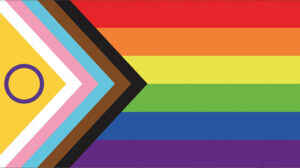At the core of our beings lie the imprints of our upbringing, echoing through the chambers of our minds long after we’ve left the physical spaces of our childhood homes.
Family dynamics sculpt our first understanding of the world. They shape us at our very core. Our familial foundation informs the values and beliefs through which we view our relationships, self-worth, and the world at large. For families where conflict is constant, and stress is the standard, dysfunctional family roles can lead to developing unhealthy attachment styles. These can lead to relationship patterns that cast a long and painful shadow into adulthood.
But you don’t have to live your whole life in this shadow.
Understanding these dysfunctional family roles, their impact on you, and the different path forward you can choose to take is crucial for achieving lasting mental well-being. It all starts with noticing how your past may be showing up in your present- and how to put a stop to the pain of the past. You can take the reins for your future.
How dysfunctional family patterns might show up in your life
The long shadow of dysfunctional family dynamics can extend far into adulthood, often in ways we don’t even realize. These patterns can subtly influence our behaviors, relationships, and even our mental health.
You may recognize the impact of past family roles in your life now through:
- Unhealthy Relationship Patterns: Do you find yourself drawn to partners who are emotionally distant, critical, or controlling? Perhaps you struggle with setting boundaries or prioritizing the needs of others over your own. These dynamics can mirror patterns learned in your childhood family.
- Negative Self-Beliefs: Do you have a persistent inner critic that whispers doubts and insecurities? These beliefs might stem from messages absorbed from your family of origin, such as “you’re not good enough” or “you don’t deserve happiness.”
- Difficulty with Emotions: Do you struggle to identify or express your feelings? Perhaps you find yourself bottling up emotions or resorting to unhealthy coping mechanisms, like substance abuse or self-isolation. These could be signs that you haven’t learned healthy ways to manage your emotional experience.
- Feeling Like an Outsider: Do you have difficulty feeling connected to others or a sense of belonging? This could be a result of emotional neglect or isolation experienced in your childhood family.
- Constant Need for Approval: Do you find yourself constantly seeking validation from others? Perhaps you have a deep-seated fear of rejection, stemming from a need for parental approval that was never fully met.
If you see yourself in some or all of these impacts, keep reading to learn more about the roles in dysfunctional families, and how to heal from the trauma they cause.
Understanding dysfunctional family roles is key to making change
Families can fall into a variety of dynamics, with specific roles emerging to maintain a sense of stability and certainty that acts as the glue to hold the whole family together. Though these roles may feel formative and secure, they are often unhealthy and can lead to unhealthy responses to other relationships and to yourself, even into adulthood. They can feel permanent as well. But please know, you can make change. Understanding is the first step to making that change.
Let’s take a closer look at some of these more common roles and the potential consequences that may impact your life.
- The Hero: Often the eldest child, the hero strives for excellence, seeking parental approval by excelling academically or athletically. As adults, they may struggle with perfectionism, overachievement, and difficulty accepting help.
- The Scapegoat: Blamed for family problems, the scapegoat becomes the lightning rod for negative emotions. They may develop low self-esteem, struggle with addiction, or become rebels in adulthood.
- The Lost Child: Often overlooked or emotionally neglected, the lost child withdraws, feeling unseen and unheard. As adults, they may struggle with emotional expression, codependency, or difficulty forming healthy relationships.
- The Mascot/Clown: The family comedian lightens the mood with humor, deflecting from deeper issues. This role can mask anxiety or depression, leading to difficulty taking responsibility in adulthood.
- The Caretaker: This child takes on parental responsibilities, neglecting their own needs to meet the emotional demands of others. They may overfunction in relationships, struggling with setting boundaries.
While these roles may overlap or even blend to meet the unique needs of your complex family as you grow up, it’s important to take the time to reflect on where you fall in this casting call of family roles. This reflection and recognition is your chance to reclaim your power, allowing you to take steps toward breaking free from the limitations of your past.
Is that you, lost child?: Recognizing the traumatic impact of family roles on adult life and how to overcome
At the heart of painful family patterns lie the dynamics of power, control, and communication. Whether it’s the authoritarian parent imposing rigid rules and expectations, the enmeshed family blurring boundaries and autonomy, or the emotionally distant caregiver withholding affection, each pattern leaves its imprint on the individual’s sense of self and relationship dynamics.
For children growing up in environments characterized by dysfunction, these patterns become the lens through which they view themselves and the world. As we journey into adulthood, the echoes of these familial roles reverberate through our experiences, influencing our choices, behaviors, and perceptions. The caretaker may find themselves in codependent relationships, seeking validation and worth through the act of nurturing others. The scapegoat may struggle with self-esteem issues, sabotaging their success as a subconscious affirmation of their perceived role as the family’s problem.
Moreover, these dysfunctional roles can perpetuate toxic cycles within our own families in adulthood, as we unwittingly replicate the patterns ingrained in us from childhood. Before we realize and heal, we may find ourselves playing out our childhood all over again. This can be especially true in blended family conflicts. These become particularly notable as individuals navigate the complexities of merging different family systems, each with its own set of roles and expectations.
Blended family conflict can also be healed
The path to healing from a dysfunctional past can be even more intricate within a blended family. New family dynamics, unresolved grief from previous relationships, and step-sibling rivalries can create additional layers of stress and conflict. These challenges can trigger old wounds or make it difficult to focus on your own healing journey.

When you seek solace in holistic therapy, these unique and often stark conflicts become poignant reminders of unresolved trauma and unmet needs. Through mindfulness and somatic practices, holistic therapy provides a safe harbor amidst the storm of blended family tensions. By fostering self-awareness and emotional regulation, individuals can navigate these conflicts with grace and resilience, forging deeper connections and laying the groundwork for healing familial wounds.
What can healing from a dysfunctional family look like?
Healing from the wounds of the past is not a linear journey but rather a cyclical process of growth and integration. Just as dysfunctional family pasts have patterns, you can rewrite your life with patterns that suit you. Four key themes can help you return to yourself as you reshape your future without the patterns of your past.
- Identify Your Triggers: Recognizing situations or people that evoke feelings from your childhood is key. When do you feel unheard, like you need to be the hero, or responsible for others’ emotions?
- Challenge Negative Self-Talk: The messages absorbed from your family can turn into self-criticism. Practice challenging these beliefs with affirmations that reflect your authentic worth.
- Set Boundaries: This will be especially challenging if your family dynamic revolved around enmeshment or emotional manipulation. Learn to say “no,” prioritize your needs, and distance yourself from unhealthy interactions, even with family members.
- Focus on Healthy Relationships: Surround yourself with people who support your growth and well-being. Building a chosen family of friends and partners who value authenticity and respect will foster a more positive self-image.
This process takes time and courage- and finding someone who believes in and encourages you with both is key to ensuring you can approach this process with support and guidance.
Break the cycle of the past with Awakened Path Counseling
Healing from the wounds of dysfunctional family roles becomes possible with a holistic, whole-person approach that addresses more than just the symptoms of your past. By engaging the body, mind, and spirit in the therapeutic process, holistic therapy offers a more comprehensive approach to addressing trauma and ingrained patterns of behavior.
In the context of healing from dysfunctional family roles, a holistic approach can provide powerful tools for transformation. Here’s how:
- Individual Therapy: This is a safe space to explore your past experiences, to understand their impact on your present, and to develop coping mechanisms. Through talk therapy, you can challenge negative beliefs and learn healthier ways to relate to yourself and others.
- Mindfulness and Meditation: These are practices that encourage you to look inward and cultivate present-moment awareness, helping you detach from negative rumination about the past. By quieting the internal critic, you’ll gain a clearer perspective on your situation and emotions.
- Bodywork Practices: Trauma can be held in the body. Somatic therapy, yoga, or breathwork can help release emotional tension and promote a sense of calmness and wholeness.
Awakened Path Counseling is committed to providing holistic therapy that empowers individuals to heal from past wounds and create a future of joy and fulfillment. We integrate evidence-based talk therapy with powerful practices like meditation and mindfulness, tailoring each client’s journey to their unique needs.
Your journey to a brighter path, unmitigated by the shadows of your past, is only a click away. Reach out today to get started.



